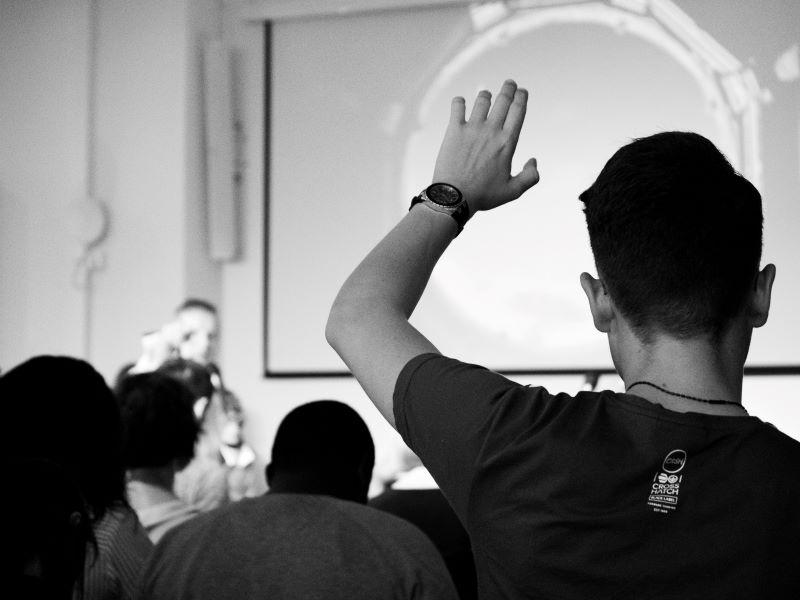
Enabling staff-student co-creation of experiential learning at scale
Co-creation of curricula by staff and students is disruptive, challenging traditional teaching models, but it motivates and engages, can drive change and is highly rewarding for our students and staff.
We have been exploring how to successfully support co-creation of experiential learning within the formal credit-bearing curriculum. The result is our student-led, individually created courses (SLICCs), which provide a scalable and flexible experiential learning and assessment framework. This framework, which is available to colleagues across higher education as an open resource, is beginning to be adopted and adapted in diverse and exciting ways.
What are SLICCs?
SLICCs use a reflective e-portfolio, with academic credit awarded for experiential learning. The courses are based on five learning outcomes – analysis, application, skills, mindsets and evaluation – that students contextualise for themselves, with support from the SLICC framework and feedback from staff.
- Proposal: Students develop an initial proposal, outlining their intended learning experience and objectives and how they will evidence their learning outcomes. Staff formative feedback helps ensure the academic viability of what they are proposing, and their reflective approach to evidence their learning, which is largely developed through reflective blogs.
- Interim and final reflective reports: Part-way through their experience, students submit an interim reflective report. This consolidates their learning and evidence up to this point as well as identifying challenges and potential tactics for tackling these. Formative feedback from their SLICCs tutor optimises students’ further progress. This better prepares them to complete their final reflective report upon completion of the SLICC.
- Feedback and self-assessment: As well as formative feedback on their proposal and interim report, students receive summative feedback on their final report. Students are also required to use the assessment rubric to self-assess their final report, justifying their grade choice for each learning outcome. There is strong alignment between student and staff grades, which further deepens their feedback and assessment literacy.
Flexibility and scalability
To maximise the flexibility and scalability of the SLICCs framework, the learning outcomes are stratified across the academic levels, through pre-honours, honours and master’s to professional doctorate. This is achieved by incrementally increasing the criticality, complexity, uncertainty and autonomy that the student needs to take ownership of and contextualise. The framework provides flexibility for staff to offer boundaries to the learning experience, or indeed for students to entirely define their own experience. SLICCs are supported by a small team as well as a comprehensive array of resources for students, tutors, academic staff and administrators. Resources include student workbooks capturing all aspects of their SLICC, step-by-step guidance for each aspect, feedback and assessment templates, and previous examples of assessed work with detailed feedback.
- Spotlight guide: The practicalities of co-creation with students
- Students as partners in diversifying reading lists
- Democratic assessment: why, what and how
Practical steps supporting success
Focus on learning from reflection: Valuing and encouraging students’ reflection maximises their learning and confidence and creates a safe space for them to deal with challenges and make mistakes. Reflection must be effectively supported. To help, we have developed the open-access Reflection Toolkit.
Recognise students’ risk aversion around assessment: The fear of “what happens if the project doesn’t work” or of approaching a “wicked problem” that is messy, cannot be fully defined and has no single obvious solution can be a significant hurdle. However, by focusing on reflective learning, staff can design assessments to remove that perceived risk and reward students for dealing with challenges.
Address assessment concerns from staff: Using e-portfolios and reflective learning to assess experiential learning is robust and well established in diverse disciplines, often associated with professional accreditation. This strong evidence base can be used to encourage adoption by other disciplines where it may be less well recognised.
Do the heavy lifting for others: By supporting the pedagogy and creating resources and online workbooks that are fully flexible to level of study, experience or discipline, staff and students can easily adopt experiential learning without having to create their own (likely niche) resources and so reduce barriers to curriculum enhancements and innovations.
Open up interdisciplinary arenas: These fully flexible resources enable co-creation in spaces between the disciplinary silos, accessible to multidisciplinary teams of students working on interdisciplinary projects – for instance, “wicked problems” such as the UN’s Sustainable Development Goals. This often allows the extracurricular to be brought into the formal curriculum.
Build communities of practice: Strong communities of peer learning emerge when we offer a way for students and staff to learn about and tackle problems they are passionate about.
Link with institutional graduate attributes: Explicitly linking learning outcomes to institutional graduate attributes can increase students’ ownership for their development, their awareness and confidence in these areas, and the links with their other university experiences. It can also boost staff recognition of the importance of these attributes in their own disciplines.
More than 20 courses across the university are now using the SLICC framework, and there is increasing engagement from external institutions in viewing and adopting the approach.
We’ve seen SLICCs go from strength to strength and respond flexibly and rapidly to changing circumstances. What comes next is uncertain and full of potential. What is certain is that if we give them the opportunity, structure and support, our students accomplish amazing things and will inspire us all.
Simon Riley is personal chair of experiential student learning and Gavin McCabe is an employability consultant and manager of the Careers Service’s Employability Consultancy, both at the University of Edinburgh.
Additional Links
Further information and open-access resources for student-led, individually created courses
These are great examples of where SLICCs are being used:
Summer SLICC: Students take full ownership and organise and define their own learning experience. This may be an internship, volunteering or entirely self-directed research.
Public health sciences: Students integrate their learning to date with a live project in their workplace or community, also aligning with competency requirements of the accrediting body.
“You can do anything you want”: Students propose their own topic, create their own groups and find their own tutors; typically orientated towards social responsibility.
Students as change agents: Interdisciplinary groups of students working with community partners on major societal challenges.
Network for Intercultural Cultural Competencies to Facilitate Entrepreneurship (NICE): An Erasmus+ project with eight European partners, where students work in international and multidisciplinary teams on problems relating to the UN’s Sustainable Development Goals.
Globally We Design: Students from a consortium of leading art and design institutions working in multidisciplinary, multi-institution virtual teams tackling global challenges.




